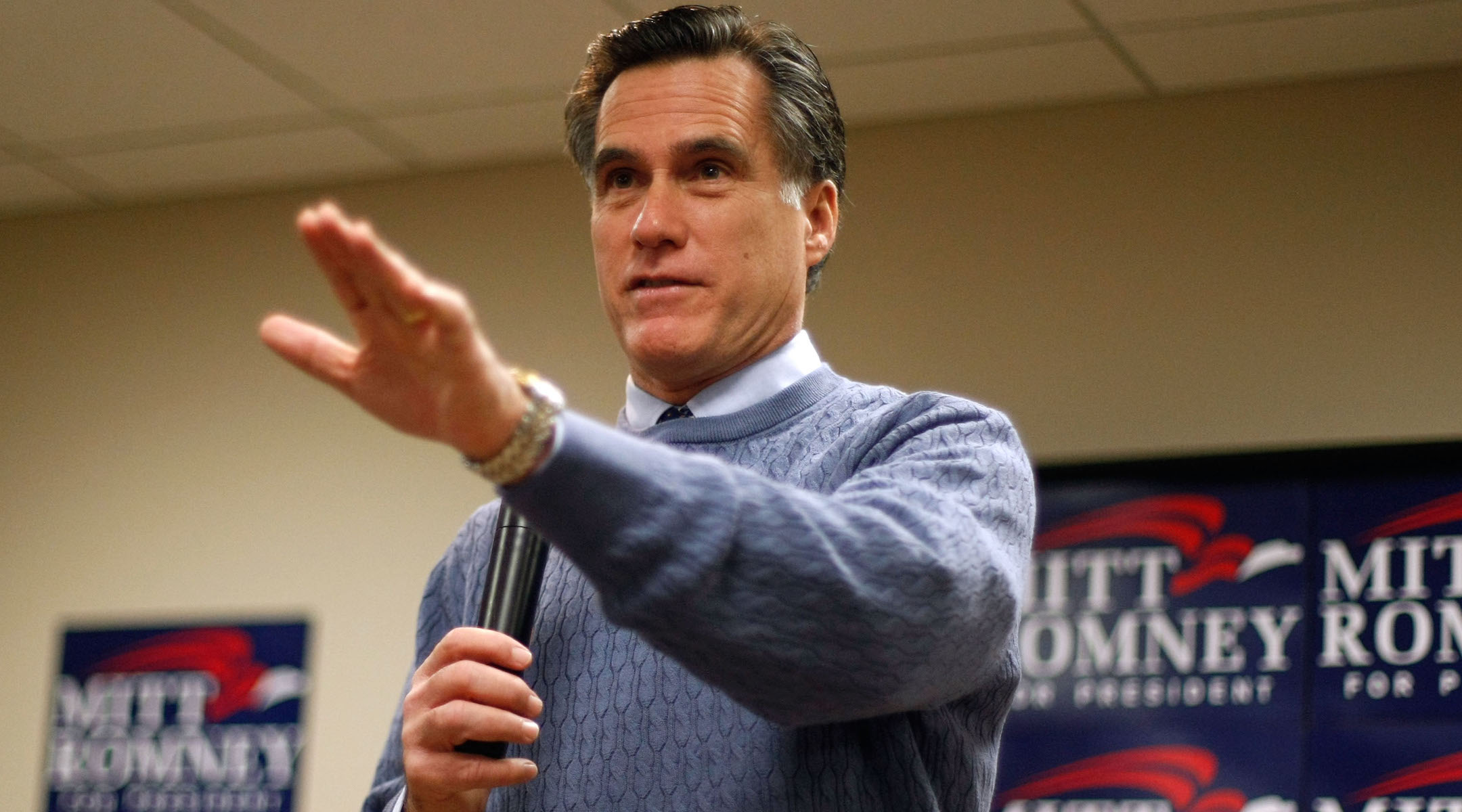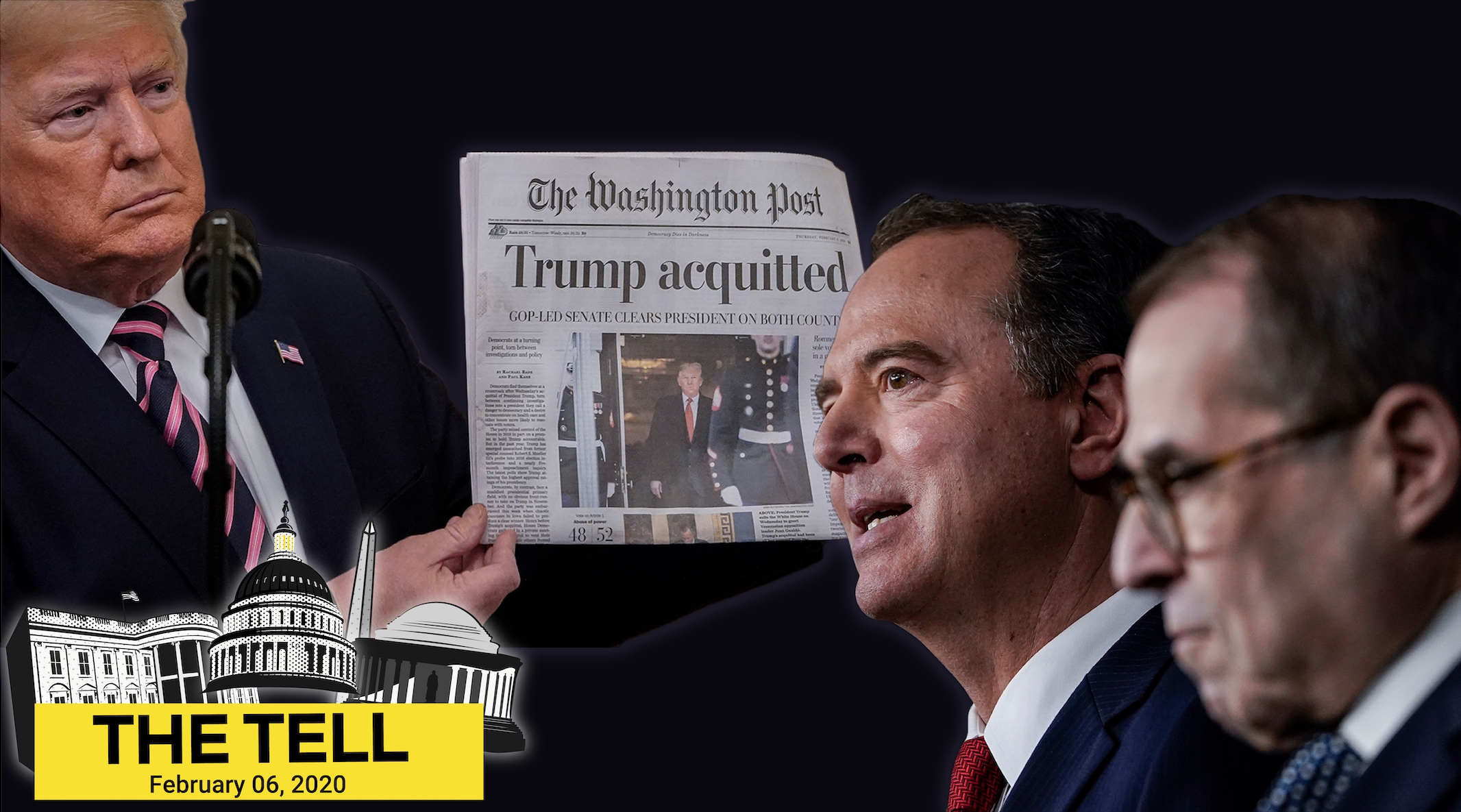WASHINGTON (JTA) — Impeachment is over, except it isn’t: We now have Impeachment, the Retribution.
“Will there be no retribution?” was a line in the official White House statement following President Donald Trump’s acquittal in the Senate.
A number of prominent Jewish lawmakers are in Trump’s sights, chief among them Rep. Adam Schiff, who led the inquiry.
Trump might have specific plans in mind. In his victory speech Thursday, the president described outcomes he would like to see, including jailings and lawsuits, before saying his lawyers advised him against those actions.
“I should have sued them, too, but when you’re president, people don’t like suing,” he said, “people” apparently referring again to his lawyers.
Retribution by presidents has precedent, most famously Richard Nixon’s enemies list. That list imagined illegal tax audits — Nixon officials refused to carry them out.
Is Trump promising something along those lines? Does he have other ideas in mind?
Let’s take a look at how that might play out, especially with some of the Jewish players in mind.
Adam Schiff
“He has betrayed our national security, and he will do so again. He has compromised our elections, and he will do so again,” he said. “You will not change him. You cannot constrain him. He is who he is.”
It’s not clear what legitimate retribution is available to Trump. He has suggested that Schiff should be arrested for treason for misrepresenting the president’s call to his Ukraine counterpart, but that does not meet any known definition of treason. (Schiff made clear in real time that his version of the phone call, which he included in his opening remarks on impeachment, was a parody.)
Schiff is a shoo-in in his Los Angeles-area district, and he has become a rare unifying figure in the Democratic Party because of his performance.
Trump could afflict Schiff in other ways.
“He has not paid the price, yet, for what he has done to our Country!” Trump said of Schiff in a tweet last month that Schiff called a threat. (The White House denied it.) An Arizona man was arrested recently for threatening Schiff’s life.
Jerry Nadler
Nadler, of New York, chairs the House Judiciary Committee and has history with Trump. As a state assemblyman and then as a congressman, Nadler endeavored to frustrate Trump’s real estate plans in Manhattan, which he called “grotesque.” Trump eventually lowered but did not abandon his ambitions. Trump now describes that as a victory, although this Washington Post review of the affair suggests that Nadler had the edge in that years-long battle.
Trump mentioned Nadler in his Thursday speech but did not hint at any retribution. (Nadler, like Schiff, is in a safe Democratic district, although Nadler is facing primary challenges from the left.)
“Nadler — I know him much of my life, he’s fought me in New York for 25 years, I always beat him,” Trump said. “And I’ll probably have to beat him again.”
Nadler shows no signs of backing down, announcing this week that he will likely subpoena John Bolton, Trump’s former national security adviser, who has suggested he is ready to testify that Trump’s preeminent motivation in withholding aid from Ukraine was to force the country to investigate Joe Biden, Trump’s Democratic political rival.
The Vindmans
Alexander Vindman is the top Ukraine staffer on the National Security Council and was among the first to raise a red flag after Trump’s conversation with Volodymyr Zelensky, Ukraine’s president. One of the people he notified was his twin brother, Eugene, a White House ethics expert.
Alexander Vindman’s testimony to Congress, in which the medaled U.S. Army officer noted his origins in a Jewish family that fled the former Soviet Union, was riveting, and the far-right media has insinuated that his brother is behind the leaks from Bolton’s forthcoming book incriminating Trump.
Trump’s national security adviser has suggested that Vindman will soon be booted from the NSC, but not from government.
Trump in his victory speech brought up Vindman in the context of the latter’s testimony that a summary of the Trump-Zelensky conversation released by the president was incomplete. Trump mocked Vindman’s testimony, noting that additional language was eventually released, but he was still vindicated.
Chuck Schumer
The New York senator, who once was close to Trump, has been scathing during the impeachment. Schumer, the minority leader, called Trump’s pressure on Ukraine “unforgivable” and “a subversion of our democracy” in his Senate speech before the vote on Wednesday.
Trump this week predicted Schumer would lose a primary challenge in 2022 from tyro freshman Rep. Alexandria Ocasio-Cortez. Would Trump, if he is still around as president, provide an assist to Ocasio-Cortez? Backing a challenger in the opposite party to harm a hated incumbent is not unprecedented in American politics. Republicans in South Carolina are planning to vote for Bernie Sanders in their state’s primary as a means of harming Biden.
Religion
One of Trump’s rhetorical tactics in the wake of his acquittal has been to question the faith of his most prominent critics. On Thursday at the National Prayer Breakfast, an occasion otherwise notable for bipartisan comity, Trump lashed out at House Speaker Nancy Pelosi, who has said she prays for him, and Utah Sen. Mitt Romney, the sole Republican who voted to convict Trump, and who said he was guided by his Mormon faith. Trump said he was not prepared to move on.
“I don’t like people who use their faith as justification for doing what they know is wrong, nor do I like people who say ‘I pray for you’ when they know that that’s not so,” he said. “So many people have been hurt that we can’t let that go on.”
It’s not the first time Trump has expressed anger when others do not behave the way he expects them based on their religion.
Trump has expressed frustrations with Jews for not supporting him (Jewish voters remain overwhelmingly opposed to Trump) considering the boons he has given Israeli Prime Minister Benjamin Netanyahu, including moving the U.S. Embassy to Jerusalem. He has said Jews who do not vote for him are not “loyal” to Israel or the Jewish community.
In Other News
Don’t mention impeachment
Impeachment didn’t come up during Trump’s State of the Union speech on Tuesday. Neither did anti-Semitism. Israel, Iran, school choice and prayer, and immigration did get mentions, however.
Orthodoxies change
Orthodox Jews once were reliably Democratic. Now they are trending Republican. Read deep dives into this evolution by my colleagues Ben Sales and Laura E. Adkins — then share your American Jewish political story with us.
Meanwhile in Iowa
Who really won momentum after Iowa? Who won a noisome face-off between an IfNotNow activist and Donald Trump Jr. in the state over whether Trump is making America more dangerous for Jews? Well, the protester got the headlines.
Alone among the nations
Of 33 countries canvassed for approval of Trump’s policies, only one has a majority that approves of Trump’s foreign policies: Israel.
Worth A Look

Mitt Romney campaigning in Iowa in 2007. (Justin Sullivan/Getty Images)
At The Atlantic, McKay Coppins got the scoop on Mitt Romney’s decision to risk the wrath of Trump and vote against the president. It’s not an article about Judaism, but it explores, with thoughtfulness, the nexus of faith and politics.
Tweet So Sweet
Politico caught Jerry Nadler catching up with his reading during the State of the Union.
Stay In Touch
Share your thoughts on The Tell, or suggest a topic for us. Connect with Ron Kampeas on Twitter at @kampeas or email him at thetell@jta.org.
The Tell is a weekly roundup of the latest Jewish political news from Ron Kampeas, the Jewish Telegraphic Agency’s Washington bureau chief. Sign up here to receive The Tell in your inbox on Thursday evenings.
JTA has documented Jewish history in real-time for over a century. Keep our journalism strong by joining us in supporting independent, award-winning reporting.






